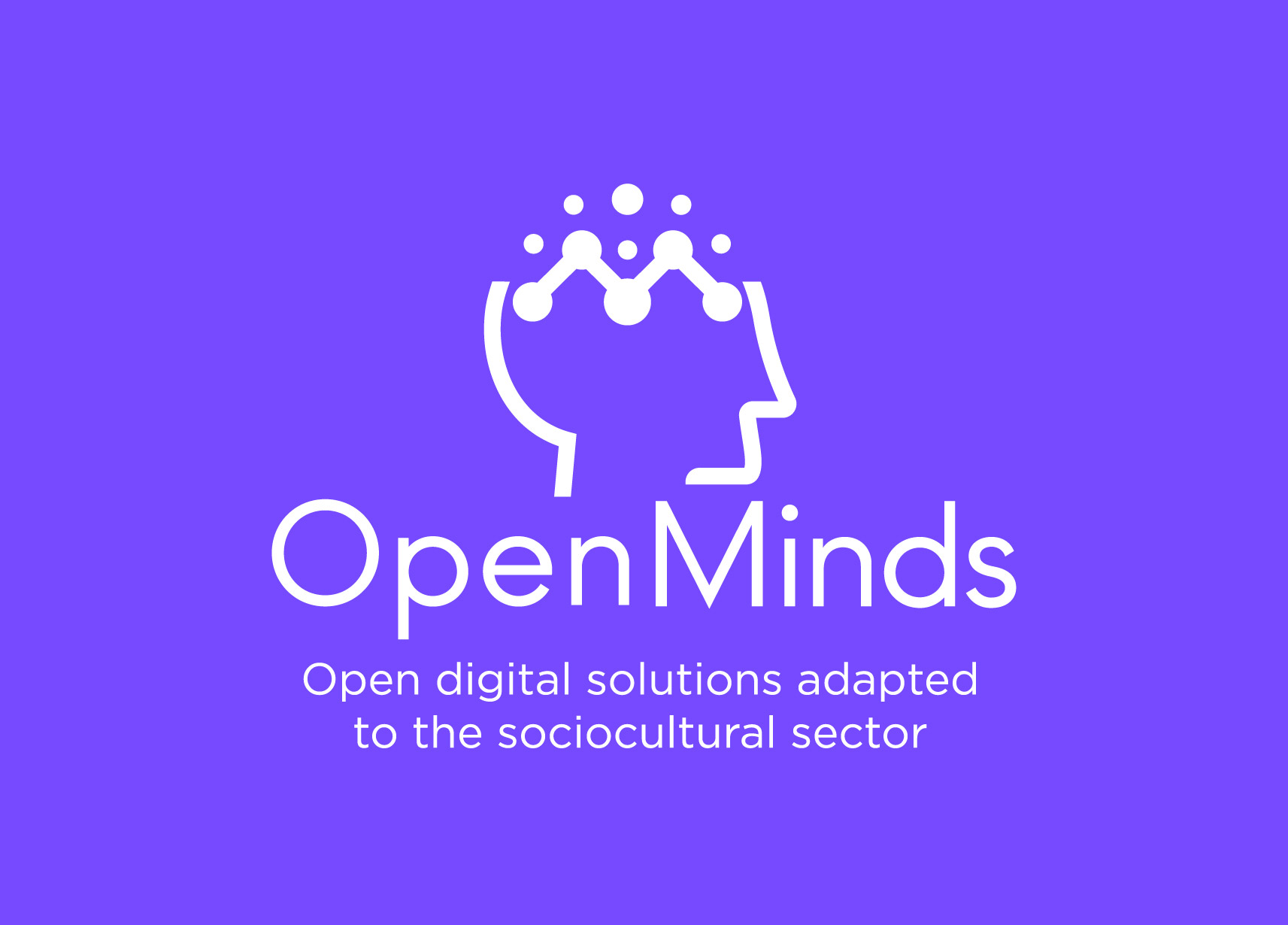
24 Apr OpenMinds: Empowering European Society through Digitalisation
In today’s landscape, digitalisation has emerged as a fundamental element driving progress and development in all spheres of society. The ability to adapt and leverage digital tools has become a prerequisite for success at both individual and organisational levels. Recognising this urgent need, the OpenMinds project has emerged as a beacon of hope, dedicated to strengthening the digital skills of one of the key sectors of European society: that encompassing social and cultural actors, as well as the general public with whom they interact.
What is OpenMinds?
OpenMinds is an ambitious project that aims to bridge the digital divide and promote digital inclusion among the various strata of European society. Its main objective is to empower social and cultural actors, as well as the general public, by equipping them with the digital skills needed to successfully navigate the digital age. This project not only focuses on providing technical knowledge, but also aims to foster an open and receptive mindset towards technology and its possibilities.
The Context of the Health Crisis: Increased Urgency
During the recent health crisis, the needs in terms of digital transition intensified considerably. The pandemic highlighted the magnitude of the digital divide and the urgency of increasing digital skills in all sectors of society. As the world was forced to adapt to new forms of online work, education and socialisation, it became clear that those with limited digital skills were at a disadvantage. From conducting virtual meetings to the transition to e-commerce, the ability to understand and use digital tools became a determining factor for survival and success.
The Role of OpenMinds in European Society
In this context, the OpenMinds project emerges as a catalyst for change, offering tangible solutions to address the digital divide. By specifically targeting social and cultural actors as well as the general public, Open Minds recognises the importance of empowering those who have a significant impact on society. Social and cultural actors play a crucial role in shaping societal norms and values, and by empowering them digitally, it opens the door to greater innovation and citizen participation.
The Objectives of OpenMinds
The objectives of the OpenMinds project are multifaceted and cover several key aspects of digitalisation:
1. increasing digital skills: the primary objective of OpenMinds is to provide participants with the necessary skills to thrive in the digital age. This ranges from basic competencies, such as the use of productivity tools and web browsing, to more advanced skills, such as programming and data analysis.
2. Promoting digital literacy: Beyond simply teaching technical skills, OpenMinds seeks to promote a deeper understanding of how technology works and how it can affect society at large. This involves teaching participants about issues such as online security, data privacy and digital ethics.
3. Foster innovation and creativity: OpenMinds aims to foster a spirit of innovation and creativity among participants, encouraging them to use their digital skills to address social and cultural problems in innovative ways. This may include developing mobile applications to solve community problems or creating digital content that promotes diversity and inclusion.
4. Facilitating digital inclusion: One of the key pillars of OpenMinds is to promote digital inclusion by ensuring that everyone has access to digital learning opportunities, regardless of their socio-economic background or level of education. This may involve creating specific programmes for marginalised communities or developing accessible resources for people with disabilities.
The OpenMinds Approach: Empowerment and Collaboration
What sets OpenMinds apart is its focus on empowerment and collaboration. The project is not only about imparting knowledge, but also about enabling participants to become agents of change in their own communities. Through participatory methodologies and active learning practices, OpenMinds fosters a sense of autonomy and confidence in participants, encouraging them to take an active role in creating a more inclusive and equitable digital future.
The Future of OpenMinds: Lasting Impact on European Society
As the OpenMinds project progresses, its impact on European society becomes increasingly evident. As more people acquire digital skills and become advocates for digital inclusion, the potential for social transformation increases exponentially. From strengthening social and cultural organisations to empowering individuals to make the most of digital opportunities, OpenMinds is laying the foundations for a more vibrant and equitable digital future in Europe and beyond.
The ethics behind the use of open source software
The technology itself lacks a defined personality or intentions, so it cannot be labelled as “respectful” or “disrespectful” towards those who use it. However, the way in which companies and developers employ and design technology can have an impact on the privacy and well-being of users. It is crucial that both developers and companies consider users’ rights and privacy when creating and employing technology, and that users have control over how their data is handled.
Adopting an ethical and responsible approach to the use of technology involves taking users’ privacy into account and ensuring that users have control over their personal information. Open source technology can facilitate this by allowing users to examine and modify the source code of an application or device, which increases transparency and security. However, it is also essential to consider other aspects such as equitable access and inclusion when designing and employing technology.
Acting ethically when using technology involves reflecting on how it affects people and the world as a whole, and making conscious choices to minimise harms and maximise benefits. This involves, among other things, respecting users’ privacy, ensuring they have control over their data, preventing online discrimination and harassment, and considering how technology impacts on equity and inclusion. It also encompasses considerations of environmental impact and animal rights. Acting ethically in the use of technology is an ongoing process that requires constant reflection and a willingness to adapt and change as new information and ethical considerations arise.
In addition, it is essential to consider environmental impact when designing and using technology ethically. The development and use of technology can have a significant ecological footprint, from the manufacture of electronic devices to the consumption of energy during their operation. It is therefore important to adopt sustainable practices, such as energy efficiency, recycling of electronic components and waste reduction, to mitigate negative environmental impact. FOSS can also play a role in this regard by encouraging the reuse and life extension of devices, which contributes to the reduction of e-waste. By considering the impact on the environment, it promotes more ethical and responsible technology that not only benefits users, but also the planet as a whole.



No Comments